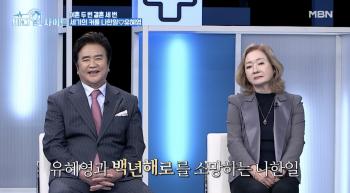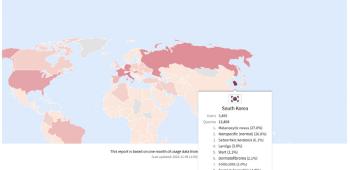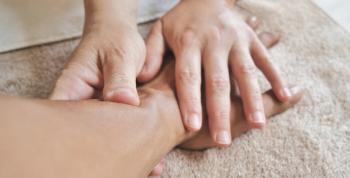The Nursing Hospital Association misinterpreted 15 trillion won in nursing benefits...It's possible if you invest 1.2 trillion won
May 26, 2025
On the recent argument for the need for 15 trillion won in annual nursing care benefits in nursing hospitalsThe Yang Hospital Association (Chairman Lim Sun-jae) refuted "It is an excessive estimate and an error analysis that does not reflect reality."
The Korea Nursing Hospital Association said in a press release on the 26th that `If the national responsibility system is implemented in stages from patients who are hospitalized with medical degree or higher with high medical needs and nursing needs, the health insurance financial expenditure can be managed within KRW 2 trillion," he stressed.
The Nursing Hospital Association can implement a national responsibility system for severely ill patients in nursing hospitals who absolutely need care with only about KRW 1 trillion in health insurance financeRegarding the presidential candidates' pledge to provide nursing care for nursing hospitals, he argued that "the national responsibility system for the weak should be urgently implemented in order to solve social problems such as the so-called 'caregiver hell' and 'caregiver murder'".
At the same time, the association can implement the national responsibility system for nursing hospitals by investing KRW 1.2 trillion and up to KRW 1.6 trillion in health insurance finances" he said.
Among the five patient classification groups in nursing hospitals, the National Responsibility for Care proposed by the association targets 140,000 patients with the highest level of medical care (artificial respirator, coma, central venous nutrition, etc.), medical altitude (such as cerebral palsy, quadriplegia, Parkinson's disease with more than 18 points in daily life performance (ADL)), and medical severity (such as cerebral palsy, quadriplegia, Parkinson's disease with less than 11-17 points in ADL).
The association argues that if one caregiver cares for eight people (8 to 1) for these inpatients, the total annual care expenses will be 1.521 trillion won, and if the state pays 80%, the health insurance financial investment will be 1.2172 trillion won per year.
Under the same conditions, if you provide 6 to 1 care and 4 to 1 care instead of 8 to 1, the annual health insurance financial investment will cost 1.3993 trillion won and 1.6431 trillion won, respectively.
Regarding the financial resources required for nursing care benefits of 15 trillion won per year raised by some, the association said that if the national responsibility system is implemented in stages from hospitalized patients with high medical and moderate medical needs and nursing needs, the health insurance financial expenditure can be managed to within 2 trillion won," he stressed.
The association believes that the government needs to improve the 'Care Hospital Care Support Pilot Project' currently being implemented by the government.
As the pilot project for nursing care support in nursing hospitals is limited to patients with the highest level of medical care and the highest level of medical care, medical intensive care patients who are in desperate need of caregiver's help cannot benefit at all, and the out-of-pocket rate is 40-50%, and the cost support period is limited to 180 days (maximum 300 days), which is not suitable for strengthening coverage.
Lim Sun-jae, Chairman of the Korea Nursing Hospital Association, said "In order to ease the burden of nursing expenses for inpatients and caregivers in nursing hospitals, the national responsibility system for the weak should be implemented earlier."It is expected that once nursing benefits are implemented, education for caregivers can be strengthened, and nursing services based on dignity and human rights can be provided," he added.
Meanwhile, according to the Ministry of Health and Welfare and the National Health Insurance Corporation's Health Insurance Research Institute, the health insurance budget for domestic nursing hospital patients is at least 15 trillion won per year. Considering that the total amount of health insurance expenditure last year was 97.3626 trillion won, it is estimated that about 15% of health insurance finances go to nursing expenses.
The Korea Nursing Hospital Association said in a press release on the 26th that `If the national responsibility system is implemented in stages from patients who are hospitalized with medical degree or higher with high medical needs and nursing needs, the health insurance financial expenditure can be managed within KRW 2 trillion," he stressed.
The Nursing Hospital Association can implement a national responsibility system for severely ill patients in nursing hospitals who absolutely need care with only about KRW 1 trillion in health insurance financeRegarding the presidential candidates' pledge to provide nursing care for nursing hospitals, he argued that "the national responsibility system for the weak should be urgently implemented in order to solve social problems such as the so-called 'caregiver hell' and 'caregiver murder'".
At the same time, the association can implement the national responsibility system for nursing hospitals by investing KRW 1.2 trillion and up to KRW 1.6 trillion in health insurance finances" he said.
Among the five patient classification groups in nursing hospitals, the National Responsibility for Care proposed by the association targets 140,000 patients with the highest level of medical care (artificial respirator, coma, central venous nutrition, etc.), medical altitude (such as cerebral palsy, quadriplegia, Parkinson's disease with more than 18 points in daily life performance (ADL)), and medical severity (such as cerebral palsy, quadriplegia, Parkinson's disease with less than 11-17 points in ADL).
The association argues that if one caregiver cares for eight people (8 to 1) for these inpatients, the total annual care expenses will be 1.521 trillion won, and if the state pays 80%, the health insurance financial investment will be 1.2172 trillion won per year.
Under the same conditions, if you provide 6 to 1 care and 4 to 1 care instead of 8 to 1, the annual health insurance financial investment will cost 1.3993 trillion won and 1.6431 trillion won, respectively.
Regarding the financial resources required for nursing care benefits of 15 trillion won per year raised by some, the association said that if the national responsibility system is implemented in stages from hospitalized patients with high medical and moderate medical needs and nursing needs, the health insurance financial expenditure can be managed to within 2 trillion won," he stressed.
The association believes that the government needs to improve the 'Care Hospital Care Support Pilot Project' currently being implemented by the government.
As the pilot project for nursing care support in nursing hospitals is limited to patients with the highest level of medical care and the highest level of medical care, medical intensive care patients who are in desperate need of caregiver's help cannot benefit at all, and the out-of-pocket rate is 40-50%, and the cost support period is limited to 180 days (maximum 300 days), which is not suitable for strengthening coverage.
Lim Sun-jae, Chairman of the Korea Nursing Hospital Association, said "In order to ease the burden of nursing expenses for inpatients and caregivers in nursing hospitals, the national responsibility system for the weak should be implemented earlier."It is expected that once nursing benefits are implemented, education for caregivers can be strengthened, and nursing services based on dignity and human rights can be provided," he added.
Meanwhile, according to the Ministry of Health and Welfare and the National Health Insurance Corporation's Health Insurance Research Institute, the health insurance budget for domestic nursing hospital patients is at least 15 trillion won per year. Considering that the total amount of health insurance expenditure last year was 97.3626 trillion won, it is estimated that about 15% of health insurance finances go to nursing expenses.
|
This article was translated by Naver AI translator.














